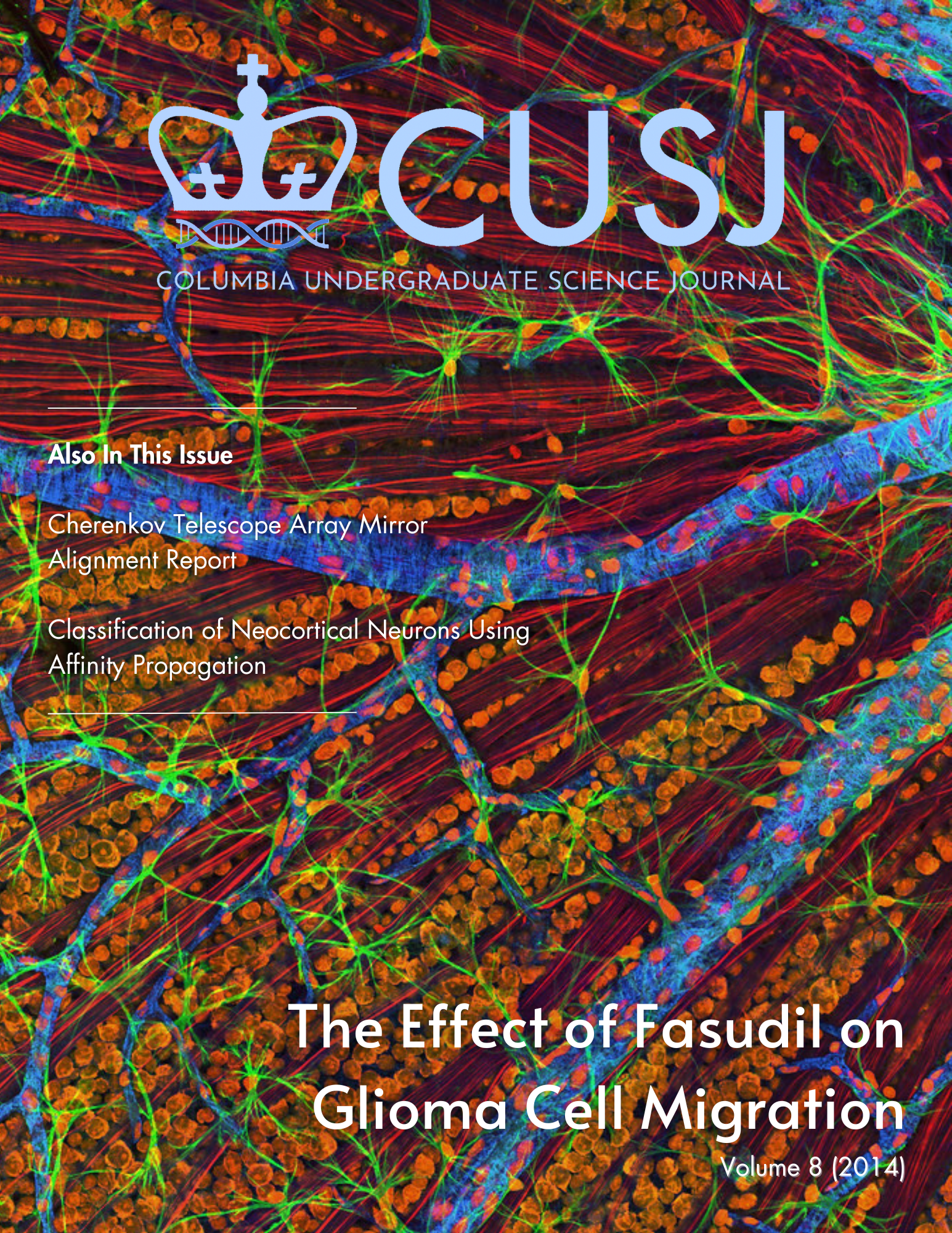Abstract
Gliomas are tumors arising from glial cells that are highly infiltrative within the brain. Their extensive migratory patterns greatly limit the treatment options and prognoses for patients. It has been shown that glioma cells undergo migration in a unique manner that relies heavily on non-muscle myosin II. Since functionality of non-muscle myosin II requires the phosphorylation of its regulatory light chain by enzymes like Rho-Kinase, we have treated glioma cells with the Rho-Kinase inhibitor, fasudil, and tested its effects. The results indicated that fasudil is a potent inhibitor of migration and also accordingly decreases regulatory light chain phosphorylation in glioma cells. This suggests that fasudil could be a good potentia l candidate for future in vivo studies and contribute to current therapeutic options for the treatment of gliomas. However, residual cell motility and phosphorylation despite treatment with fasudil also suggest that more work must be done to assess the importance of other pathways in glioma cell migration.

